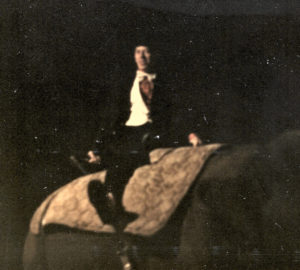Last night we ended up on the couch
trying to remember
all of the friends who had died so far,
and this morning I wrote them down
in alphabetical order
on the flip side of a shopping list
you had left on the kitchen table.
So many of them had been swept away
as if by a hand from the sky,
it was good to recall them,
I was thinking
under the cold lights of a supermarket
as I guided a cart with a wobbly wheel
up and down the long strident aisles.
I was on the lookout for blueberries,
English muffins, linguini, heavy cream,
light bulbs, apples, Canadian bacon,
and whatever else was on the list,
which I managed to keep grocery side up,
until I had passed through the electric doors,
where I stopped to realize,
as I turned the list over,
that I had forgotten Terry O’Shea
as well as the bananas and the bread.
It was pouring by then,
spilling, as they say in Ireland,
people splashing across the lot to their cars.
And that is when I set out,
walking slowly and precisely,
a soaking-wet man
bearing bags of groceries,
walking as if in a procession honoring the dead.
I felt I owed this to Terry,
who was such a strong painter,
for almost forgetting him
and to all the others who had formed
a circle around him on the screen in my head.
I was walking more slowly now
in the presence of the compassion
the dead were extending to a comrade,
plus I was in no hurry to return
to the kitchen, where I would have to tell you
all about Terry and the bananas and the bread.
You can hear the poet read his poem here.


